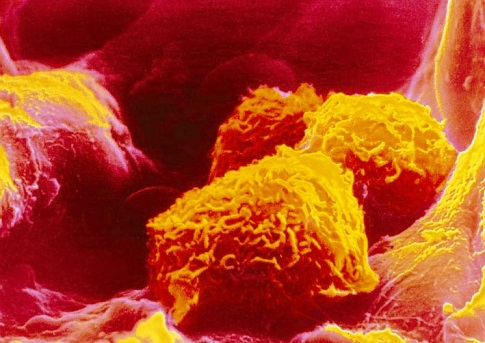French study finds that SARS-CoV-2 infection in the lungs primarily targets specific pulmonary macrophages
Nikhil Prasad Fact checked by:Thailand Medical News Team Aug 17, 2024 7 months, 3 weeks, 6 days, 12 hours, 25 minutes ago
Medical News: A team of international researchers from Aix-Marseille University, Université Paris-Saclay, and Foch Hospital has unveiled critical insights into how the SARS-CoV-2 virus interacts with the human lung at the cellular level. Their pioneering study has shown that the virus primarily targets specific subsets of lung macrophages, immune cells that play a pivotal role in maintaining lung function and combating infections. These findings provide a deeper understanding of the early stages of COVID-19 infection and offer new avenues for developing targeted therapies to combat the disease. This
Medical News report will explore the study's methodology, key findings, and implications for future COVID-19 treatments.

French study finds that SARS-CoV-2 infection in the lungs primarily targets
specific pulmonary macrophages
Developing an Innovative Model for Studying SARS-CoV-2:
The complexity of studying SARS-CoV-2 in human lung tissue has been a significant challenge for scientists. Traditional animal models do not fully replicate the human immune response, and in vitro systems often lack the intricate architecture of lung tissues. To overcome these limitations, the research team employed an innovative ex vivo lung perfusion (EVLP) model, typically used in lung transplantation, to maintain human lungs alive and functional outside the body.
The lungs used in this study were obtained from donors whose organs were declined for transplantation. These lungs were connected to a perfusion system that mimicked blood circulation and were ventilated to replicate normal breathing. By maintaining the lungs in a state similar to how they would function in a living person, the researchers created a more accurate environment for studying how SARS-CoV-2 interacts with lung cells.
The Study's Methodology:
The study involved three human lungs exposed to different variants of the SARS-CoV-2 virus through nebulization, simulating how the virus would naturally enter the respiratory system. The variants used included the original Wuhan lineage and two variants with the D614G mutation, which has been associated with increased transmissibility.
After exposing the lungs to the virus, the researchers used single-cell RNA sequencing (scRNA-seq) to analyze the gene expression of individual lung cells. This advanced technique allowed them to identify which cells were infected by the virus and how these cells responded on a molecular level.
Key Findings: The Role of Macrophages in SARS-CoV-2 Infection
One of the most striking findings of the study is that SARS-CoV-2 primarily targets two types of macrophages in the lungs: alveolar macrophages (AMs) and monocyte-derived macrophages (MoMacs). Macrophages are immune cells that play a crucial role in maintaining lung homeostasis and protecting against infections. AMs reside in the airspaces of the lungs and are responsible for clearing debris and pathogens, while MoMacs are derived from monocytes and can migrate to sites of infection or injury.
The study revealed that both AMs and MoMacs are
among the first cells to be infected by SARS-CoV-2. Upon infection, these cells produce various cytokines and chemokines, signaling molecules that orchestrate the immune response. Notably, MoMacs were found to produce higher levels of inflammatory cytokines compared to AMs. This heightened inflammatory response from MoMacs is significant because it can contribute to the severe lung inflammation observed in COVID-19 patients, leading to conditions such as acute respiratory distress syndrome (ARDS).
The researchers also discovered that the virus's interaction with these macrophages varies depending on the viral strain and the dose. For instance, the D614G variant triggered a more robust inflammatory response in MoMacs compared to the original Wuhan strain, highlighting the importance of understanding how different viral mutations can influence disease severity.
Implications for COVID-19 Treatment:
The discovery that SARS-CoV-2 targets lung macrophages opens new possibilities for developing targeted therapies. By focusing on how the virus interacts with AMs and MoMacs, researchers can develop treatments that modulate the immune response, potentially reducing the severity of COVID-19. For example, therapies that specifically inhibit the inflammatory response of MoMacs could help prevent the excessive inflammation that leads to severe respiratory symptoms in COVID-19 patients.
Moreover, the study's findings underscore the need to consider viral strain differences when developing COVID-19 treatments. As the virus continues to evolve, understanding how different mutations affect the virus's interaction with lung cells will be crucial for designing effective therapies.
Challenges and Future Directions:
While the study provides valuable insights, it also highlights the challenges of studying SARS-CoV-2 in human lung tissue. One of the study's limitations was the difficulty in detecting active viral replication within the lung tissue over the 10-hour observation period. Although viral RNA was present in the lungs, the researchers did not observe a significant increase in viral RNA levels, suggesting that the virus may not replicate as extensively in macrophages as in other cell types. This finding raises questions about the virus's life cycle within the lungs and the role of other cell types in sustaining the infection.
Future research should focus on understanding the long-term effects of SARS-CoV-2 on lung macrophages and how these effects contribute to chronic lung conditions observed in some COVID-19 survivors. Additionally, further studies are needed to explore how the virus interacts with other lung cells, such as pneumocytes, which are also thought to be targets of SARS-CoV-2.
Conclusion:
This groundbreaking study has provided critical insights into how SARS-CoV-2 targets lung macrophages, particularly alveolar macrophages and monocyte-derived macrophages, during the early stages of infection. By revealing the virus's preference for these immune cells and the resulting inflammatory response, the research offers new directions for developing targeted therapies to treat COVID-19.
The study's findings were published in the peer-reviewed journal: Cellular and Molecular Life Sciences.
https://link.springer.com/article/10.1007/s00018-024-05322-z
For the latest COVID-19 News, keep on logging to Thailand
Medical News.
Read Also:
https://www.thailandmedical.news/news/macrophages-drive-inflammation-and-symptoms-in-sars-cov-2-infected-gut
https://www.thailandmedical.news/news/cytokines-from-covid-19-spike-activated-macrophages-present-a-new-threat-to-blood-vessel-health
